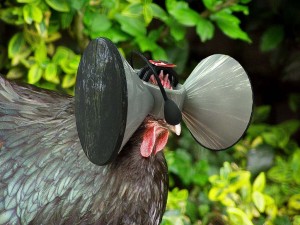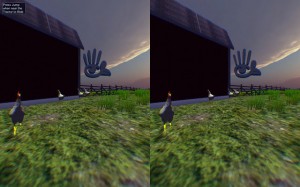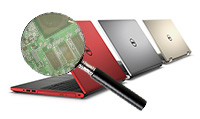

I find it hard to imagine how many farmers would actually pick up on this; if the obviously more expensive option of attaching a headset to multitudes of animals could outweigh the benefits of providing actual roaming space. Stewart has been giving TED-like presentations across the Midwest. So far, these presentations have been delivered to students at Ohio State University, as well as Iowa farmers with a fairly convincing level of seriousness. His business pitch seems earnest, but Stewart's intention may not become fully manifested. This is not because Stewart wouldn't fully back the implementation, just there may be hidden meaning behind it.
Included in the pitch: a virtual life that could “also provide protection from the stressors and predators that threaten free-range chickens. The goal of the project is to raise that question of how do we know what's best, or what is humane treatment”. As mentioned, it is hard to see this being fully implemented into a system right now. It is just too darn expensive. I think the main lesson Stewart wants his audiences to learn is that this kind of technology is plausible.


“It’s as much about animal husbandry as it is about human husbandry,” says Stewart. “We live in little boxes, we work in little boxes, and then we’re engaging in these virtual environments more. Why wouldn’t chickens choose the same thing?”
The chickens don't have a say. Chickens also don't sign up for living in dreadful, inhumane conditions where they end up suffering until death. This pitch may never come to fruition, but it does more than address the high density livestock conundrum that makes up the meat industry. The Second Livestock's model has been designed to shed light on our relationship with gadgets and the world, and where that relationship takes us. You would almost have to hear the presentation to believe it. Stewart hopes to bring his creation to Iowa's Farm Progress show this summer, also willing to try out the Oculus headsets only if a scientist would be willing to partner with him.

 Laptop & Tablet Parts
Laptop & Tablet Parts




















